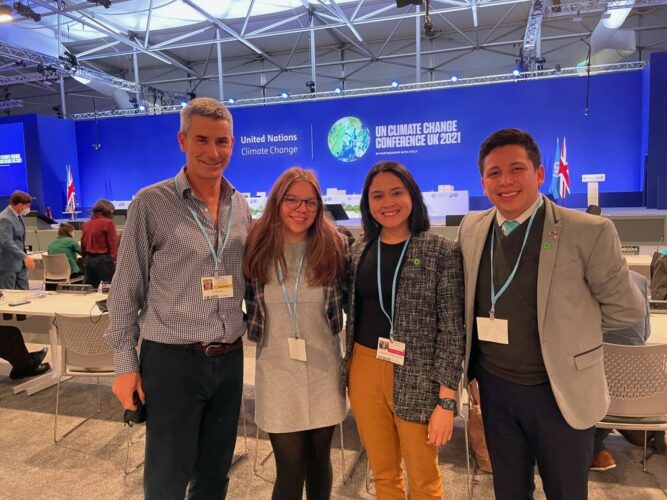Damien Plant - Personal Reflections on COP26: is this the end of the beginning?
Damien Plant MBA FIEMA reflects on his experience at COP26, positive outcomes and the action needed for change.
I had the immense privilege to attend COP26 as an observer for IEMA. Whilst I’ve been engaged with climate change since 1992 (as a mountain leader supporting a survey of glacial retreat in Iceland), as a military officer climate change was never core to my work - I fitted it in almost by stealth! However, in my last role as a diplomat - and with a key FCDO objective being to promote COP26 this all changed. I could now draw together the twin strands of addressing the climate crisis with the responsibilities of the Armed Forces. Whilst the key initiative was delivering intergovernmental-level ‘Greening Defence’ events in Europe, a supplementary was promoting defence interest in COP26. This reflected a strategic shift for the UK MoD to address its own responsibilities and, as the host of COP, along with the UN and others to bring military actors to Glasgow. It is noteworthy that previously defence had been explicitly excluded from COPs – incredible!
Full disclosure – this was my first COP. It has been much criticised and I would echo the issues of shortcomings in administration, accommodation etc. Far more importantly were the failures to address fully multiple issues such as coal or loss and damage. But there were also key successes, for example with the GFANZ financial commitment and clear action on methane.
As a ‘newbie’ I admit to being dazzled by the passion and commitment of thousands of talented individuals and the engagement of hundreds of different organizations and single-issue parties. For me the central takeaway from COP26 was how much is happening just below the ‘surface’. I use the metaphor of an iceberg - corny perhaps, but relevant.

To explain. In my view the justified criticism from developing nations, civil society et al is primarily aimed at the top national/international level above the surface. What goes largely unseen is what takes place further down. One example is the sub-national work led by Nigel Topping and Gonzalo Muñoz. Elsewhere hundreds of pavilions reflected inspirational work on everything from air to water, ever-more engagement from academia and regional, indigenous and faith groupings coming together to decide their agendas and gain a louder voice.
Civil society activism beyond the Blue Zone was unforgettable. I deliberately travelled to and engaged with as much activity as possible - on a bicycle borrowed from my incredible, Glaswegian host family! Whilst the diversity of stakeholder voices at COP needs much more emphasis, my impression is that this is improving.
I came away upbeat and motivated. I believe this problem can be solved – the issue is how quickly, with the penalties of tardiness being more cost and, tragically, greater impact on the lives of the least fortunate and nature itself. Since COP26 I have presented my reflections to various audiences, from the Swiss government to classes of ten-year olds at a UN school. Whilst recognising/sharing the widely felt anxiety, I also feel that we can do this. But the end of the beginning has to come this decade.
Please note: the views expressed in this blog are those of the contributing individual, and are not necessarily representative of the views of IEMA or any professional institutions with which IEMA is associated.
Subscribe
Subscribe to IEMA's newsletters to receive timely articles, expert opinions, event announcements, and much more, directly in your inbox.
